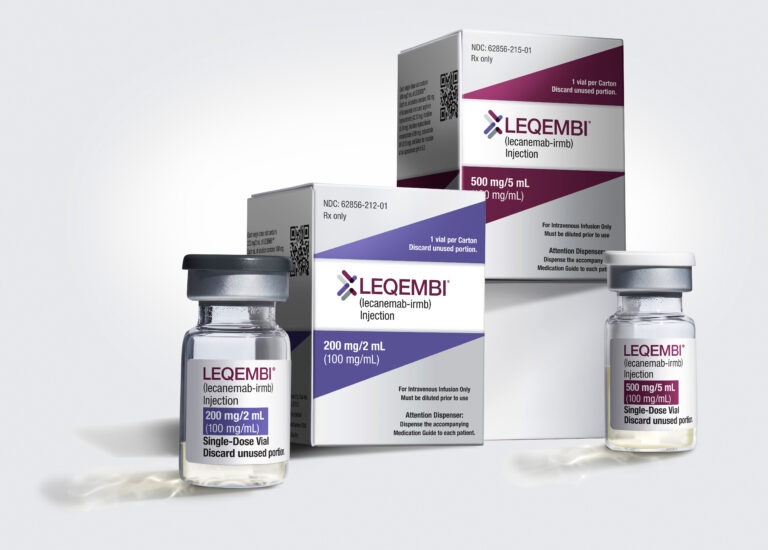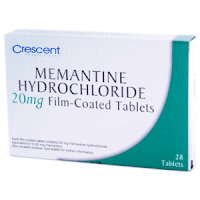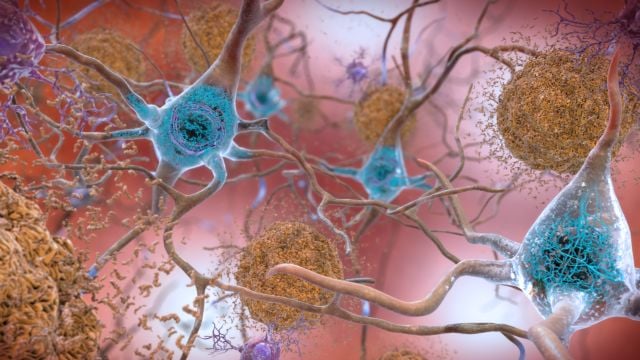
Adlarity has 7 Advantages over Donepezil Tablets
FDA-approved ADLARITY is the once-weekly donepezil patch. See how it compares to donepezil / Aricept / Ebixa tablets for Alzheimer’s.

FDA-approved ADLARITY is the once-weekly donepezil patch. See how it compares to donepezil / Aricept / Ebixa tablets for Alzheimer’s.

Swedish researchers find that cholinesterase inhibitors provide cognitive benefits and reduce mortality for up to five years after an Alzheimer’s diagnosis. One medication significantly reduced the risk of developing severe dementia.

Now, a third new Alzheimer’s drug expected to be approved by the Food and Drug Administration (FDA),. The field of new drugs is beginning to show progress in the fight to slow the disease.

First drug to modestly slow Alzheimer’s cognitive decline, based on 1,800 patients.

The FDA Advisory Committee’s endorsement of Leqembi paves way for traditional approval, ushers in a new era for Alzheimer’s

Researchers find that people with dementia who received the drug suvorexant showed a drop in tau and amyloid beta. The drug is already available for sleep problems in Alzheimer’s. Learn more.

NAMENDA® / EBIXA® (generic MEMANTINE) is FDA-approved for Alzheimer’s. Learn about new research on how it may help in preventing or slowing dementia.

Research shows that lecanemab is the first drug ever to slow cognitive decline in Alzheimer’s. Learn more.

People with Alzheimer’s are often prescribed drugs for other conditions — including diabetes or high blood pressure — at the same doses as those without dementia. That practice might need to be reexamined.

Fifty percent of people with Lewy Body Dementia said they were originally misdiagnosed with a type of dementia such as Alzheimer’s. Find out how LBD is exquisitely sensitive to certain medications, and why an early, accurate diagnosis is critical.

SHORT-TERM MEMORY lapses are obvious signs of Alzheimer’s, but other tell-tale signals begin to show much earlier. Learn how to look for semantic impairments, such as simple questions about size.

Discover compassionate, practical and proven strategies to navigate dementia care confidently, ensuring the well-being of both you and your loved one.

How can military service impact brain health? What are specific risk factors? Are there vital steps soldiers can take towards dementia prevention and treatment?

SHORT-TERM MEMORY lapses are obvious signs of Alzheimer’s, but other tell-tale signals begin to show much earlier. Learn how to look for semantic impairments, such as simple questions about size.

Three important dementia studies focus on HS-AGING, a type of dementia almost as common as Alzheimer’s in the 85+ group. Yet few people have heard of it. Why? What makes it different?

An intriguing study of 120 grandmothers might surprise you. Doctors know socially engaged people have better cognition and less dementia. But can a person get too much of a good thing? What’s the right balance?

Enjoy this great duet between a musician with dementia and his son. A triumph of spirit over Alzheimer’s! Sing-a-long if you like!
No spam, only news and updates.



This site was inspired by my Mom’s autoimmune dementia.
It is a place where we separate out the wheat from the chafe, the important articles & videos from each week’s river of news. Google gets a new post on Alzheimer’s or dementia every 7 minutes. That can overwhelm anyone looking for help. This site filters out, focuses on and offers only the best information. It has helped hundreds of thousands of people since it debuted in 2007. Thanks to our many subscribers for your supportive feedback.
The site is dedicated to all those preserving the dignity of the community of people living with dementia.
Peter Berger, Editor